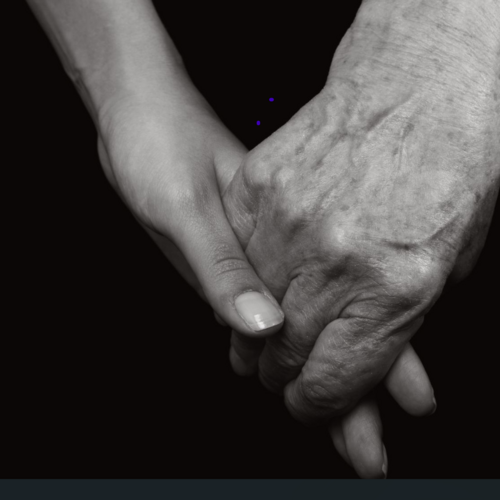For Parents and Loved ones
Information
The Parent’s Perspective
The following is written by Jennie Penkul. If you are a parent of an adult who is caught in cycles of addiction or who struggles with an overwhelming and life threatening anxiety disorder, I hope that my story will be of some interest.
My son had been battling an acute anxiety disorder for years, it sometimes threatened his survival and continually restricted every aspect of his life. He was dependant on us, his parents, for almost every aspect of his survival; and he was barely surviving. Our home and our lives were dominated by his suffering and the limitations that put on him and on us.
If you are a parent who has personal experience of supporting a loved one who is entrenched in this degree of suffering, I probably don’t need to detail just how difficult, painful and messy things can become.
My son found out about Ibogaine and told me that this may be his last resort. I agreed, we were all at rock bottom. At the time, I was caring for an aging father and a mother who was slowly dying from vascular dementia. A family member had been through surgery for cancer and I was somewhere in the menopause whilst trying to manage my therapy practice and run an organisation which provided CPD to other therapists. Life was full and challenging. But beneath it all, the foundation of my life felt shaky because my son was very unwell and I was his primary carer.
We researched how he could receive the Ibogaine treatment and who would be best to support him and so began a journey. As a therapist I knew instinctively that just having a treatment wouldn’t cut it for my son, sure it apparently had the potential for a big transformation, but, he’d already had tons of input from all kinds of interventions, what could possibly make a difference?
We arranged the necessary preliminary medical tests (don’t ever skip these and never trust anyone who says they don’t matter), we’d had numerous calls with the provider and my son had some important psychological preparation calls with his guide. He packed his bags and I dropped him off to the airport. In hindsight, I wish I had travelled with him, but back then I had other very unwell family members to care for and travelling independently for the treatment felt like an important part of his recovery journey. I’m not sure that this would be the case for a loved one who has a substance addiction, in that case a chaperone would give a greater sense of security.
The day arrived when he was with the provider and I was organising a training event for therapists here in the UK. Luckily I wasn’t speaking because I was consumed with apprehension about what was happening to my son. It was a bizarre experience, holding myself together, yet knowing that he was going through an enormously physically challenging and psychologically profound treatment. I confided in a colleague that day, saying that I had paid for my son to have a treatment that for a few people is fatal. My colleague’s eyes widened as I explained more. I imagine she thought I was insane, to willingly facilitate such a venture. But then, she couldn’t possibly understand what our version of rock bottom looked like; we mostly don’t talk about such private and sensitive struggles, if you know what this is like, you’ll understand, which is likely why you are reading this.
My fear subsided with a call from his guide who told me that he was doing okay. Several days later he returned home and described the experience in detail. To be clear, this was undoubtedly a very significant experience which afforded some huge insights, but what mattered most seems to be the impact of the understanding and integration and the ongoing relationship with his guide who helped him process and maintain the process of recovery. My son repeated this journey one more time, with the same provider and the same guide.
These experiences have been pivotal in his recovery journey. His guide supported him steadfastly not only during the preparation and integration stages, but for years thereafter as a kind of safe harbour when life was stormy. This is the kind of relationship that can make a true and lasting difference. I am hugely grateful to my son’s guide for his wisdom, kindness and commitment.
Little did I realise back then that my son would become so much better that he would eventually be able to fulfil a life ambition to train as a therapist himself and ultimately to work in psychedelic medicine clinical research and subsequently as a guide and therapist to others who struggle as he once did.
My role now is often in supporting family members of those who suffer with anxiety disorders such as OCD, eating disorders and body dysmorphia. I work in conjunction with my son Adam helping whole families make sense of what led to the suffering of one of them and helping them to take steps towards family system recovery.
If you are considering backing your loved one to undertake an Iboga treatment, be aware, this is not a decision to be taken lightly, you need to be fully informed, you need to be onside with all the plans and decisions made and ensure that things are carried out properly, both ethically and practically. You may need to be the one to carry out due diligence on your loved one’s behalf and most importantly, I propose, your role will be to ensure that they return to a secure, loving, boundaried, supportive home, where integration can happen. I found it important to do ‘work’ on myself so that post treatment I was aware of and no (so much) longer involved with the harmful dynamics that previously maintained our difficulties. I have only been able to do this by having therapy myself.
All this sounds like a lot, but I believe that from difficulty, comes the opportunity for change, growth and recovery, not just for the individual who suffers, but potentially the whole family. If you would like speak in more depth with me individually about the parent’s journey, feel free to contact me via the contact link in this website or through my website: http://jennie.penkul.com/





